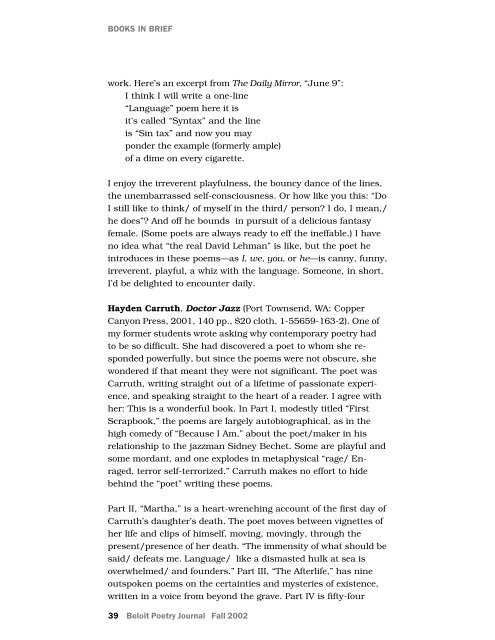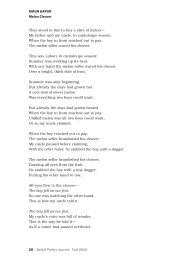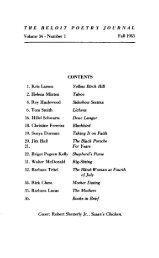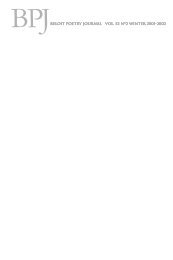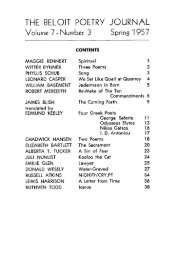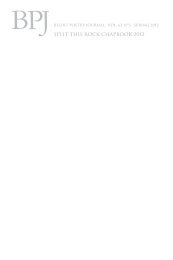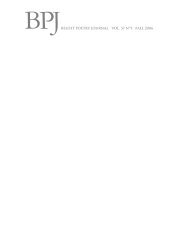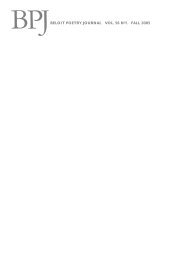You also want an ePaper? Increase the reach of your titles
YUMPU automatically turns print PDFs into web optimized ePapers that Google loves.
BOOKS IN BRIEF<br />
work. Here’s an excerpt from The Daily Mirror, “June 9”:<br />
I think I will write a one-line<br />
“Language” poem here it is<br />
it’s called “Syntax” and the line<br />
is “Sin tax” and now you may<br />
ponder the example (formerly ample)<br />
of a dime on every cigarette.<br />
I enjoy the irreverent playfulness, the bouncy dance of the lines,<br />
the unembarrassed self-consciousness. Or how like you this: “Do<br />
I still like to think/ of myself in the third/ person? I do, I mean,/<br />
he does”? And off he bounds in pursuit of a delicious fantasy<br />
female. (Some poets are always ready to eff the ineffable.) I have<br />
no idea what “the real David Lehman” is like, but the poet he<br />
introduces in these poems—as I, we, you, or he—is canny, funny,<br />
irreverent, playful, a whiz with the language. Someone, in short,<br />
I’d be delighted to encounter daily.<br />
Hayden Carruth, Doctor Jazz (Port Townsend, WA: Copper<br />
Canyon Press, 2001, 140 pp., $20 cloth, 1-55659-163-2). One of<br />
my former students wrote asking why contemporary poetry had<br />
to be so difficult. She had discovered a poet to whom she responded<br />
powerfully, but since the poems were not obscure, she<br />
wondered if that meant they were not significant. The poet was<br />
Carruth, writing straight out of a lifetime of passionate experience,<br />
and speaking straight to the heart of a reader. I agree with<br />
her: This is a wonderful book. In Part I, modestly titled “First<br />
Scrapbook,” the poems are largely autobiographical, as in the<br />
high comedy of “Because I Am,” about the poet/maker in his<br />
relationship to the jazzman Sidney Bechet. Some are playful and<br />
some mordant, and one explodes in metaphysical “rage/ Enraged,<br />
terror self-terrorized.” Carruth makes no effort to hide<br />
behind the “poet” writing these poems.<br />
Part II, “Martha,” is a heart-wrenching account of the first day of<br />
Carruth’s daughter’s death. The poet moves between vignettes of<br />
her life and clips of himself, moving, movingly, through the<br />
present/presence of her death. “The immensity of what should be<br />
said/ defeats me. Language/ like a dismasted hulk at sea is<br />
overwhelmed/ and founders.” Part III, “The Afterlife,” has nine<br />
outspoken poems on the certainties and mysteries of existence,<br />
written in a voice from beyond the grave. Part IV is fifty-four<br />
39 <strong>Beloit</strong> <strong>Poetry</strong> <strong>Journal</strong> Fall 2002


